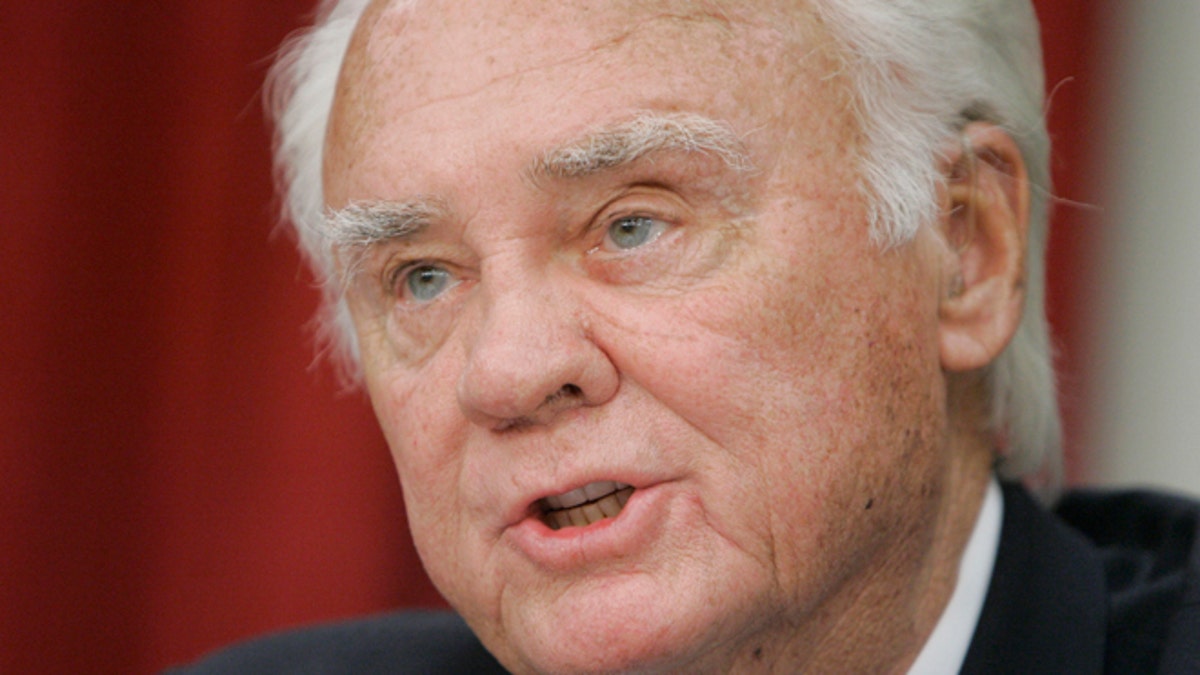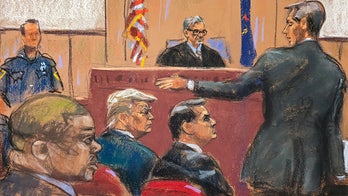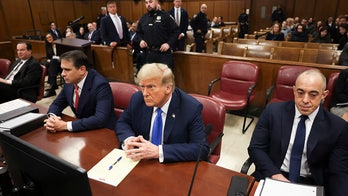
In this March 7, 2007 file photo, Rep. C.W. Bill Young, R-Fla. is seen on Capitol Hill in Washington. (AP)
Rep. C. W. “Bill” Young, a Florida Republican who was the longest-tenured Republican in the House and served as the longtime top appropriator for the defense industry, died Friday at 82.
Hospitalized at Walter Reed for a back injury, Young received a call earlier this week from former President George W. Bush thanking him for backing the military.
Young announced in recent weeks he was retiring from Congress.
He did not vote Wednesday night on the bill to raise the debt limit and fund the government.
First elected in 1970, Young became the chairman of the House Appropriations Committee’s panel on defense in 1995, serving until his death.
A strong proponent of military spending, he also served on the Military Construction and Veterans Affairs subcommittee and was one of the most influential backroom players in building the country’s expansive defense budget.
Initially, the Republican leadership passed over Young and two other senior members of the Appropriations Committee for the chairmanship, citing concerns that they would be too conciliatory with Democrats after spending their entire congressional careers in the minority.
As a peace offering, they offered him the gavel of the defense subcommittee. But Young rose to become the head of the full Appropriations Committee four years later, a position he held until 2005 when Republican conference-enforced term limits forced him back into the subcommittee chairmanship.
Young joined the National Guard when he was 18, serving from 1948 to 1957, and spent six additional years as a reservist. He dropped out of high school and never attended college, instead working his way up as an insurance executive after he completed his military service.
He first entered politics in 1960 at the age of 29, when he was elected as the only Republican in the Florida Senate, and he eventually rose to minority leader within five years. Ten years later, he ran for Congress representing Florida’s tenth district and handily won reelection in the decades that followed.
Whenever Young’s name emerged in the headlines, it was because of controversies over his ties to the military or earmarks.
At President George W. Bush's State of the Union address on January 31, 2006, the Capitol Police forced Young's wife, Beverly, to leave the chamber’s Visitors Gallery because she was wearing a T-shirt emblazoned with the words, "Support the Troops - Defending Our Freedom."
Young was infuriated by the treatment of his wife. “Because she had on a shirt that someone didn't like that said support out troops, she was kicked out of this gallery,” Young said in a chamber floor speech the next day as he held up the shirt for all to see.
“Shame, shame,” he said contemptuously.
A year later, the congressman came under fire when The Washington Post published a series of controversial reports describing substandard conditions at Walter Reed Army Medical Center. Young had routinely visited the hospital but had never commented on the depth of the problems there.
He said that he knew of the problems as early as 2003, but opted to discuss them privately with the hospital management rather than going public or using his influence as an appropriator for the facility.
The Florida Democratic Party criticized Young for not taking any action on the state of Walter Reed Army Medical Center, which he called a “personal smear campaign.” Nonetheless, colleagues of both sides of the aisle defended Young. Hawaii Democratic Rep. Neil Abercrombie called the claims “totally baseless.”
In 2009, the Office of Congressional Ethics began an investigation of seven members of the Defense subcommittee, starting with Young. It claimed that he, along with the other six members, had requested earmarks for companies that had hired former staffers and given large donations to their reelection campaigns.
But the panel ultimately dropped the case within a year and exonerated all of the members under investigation.



